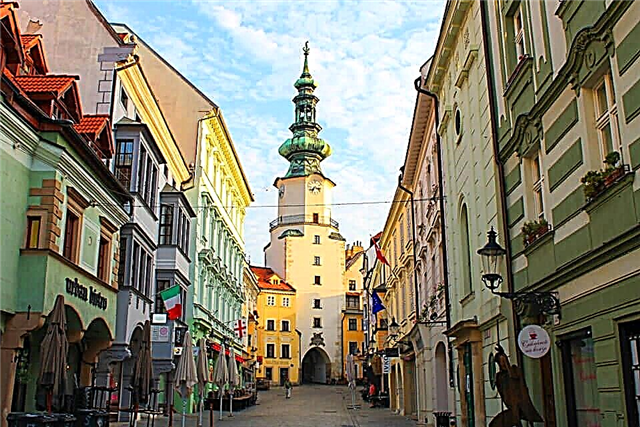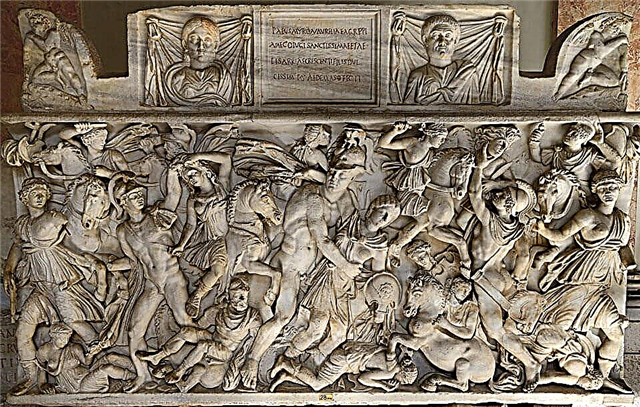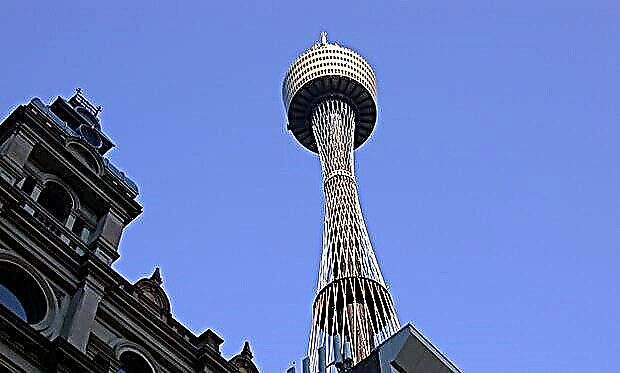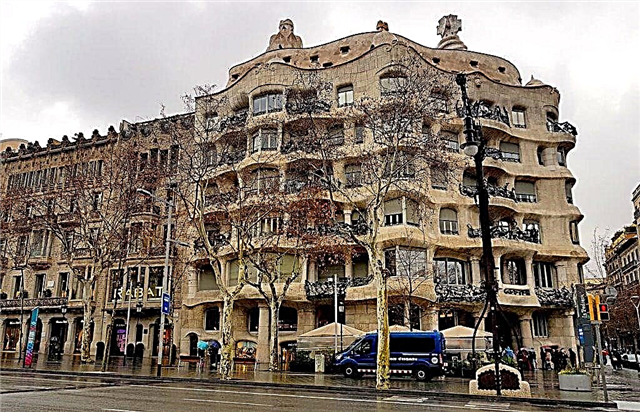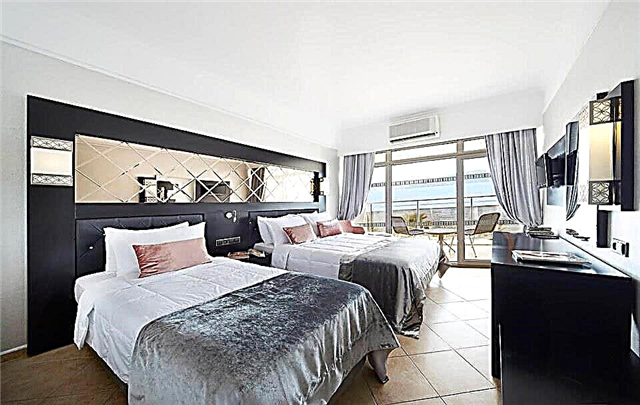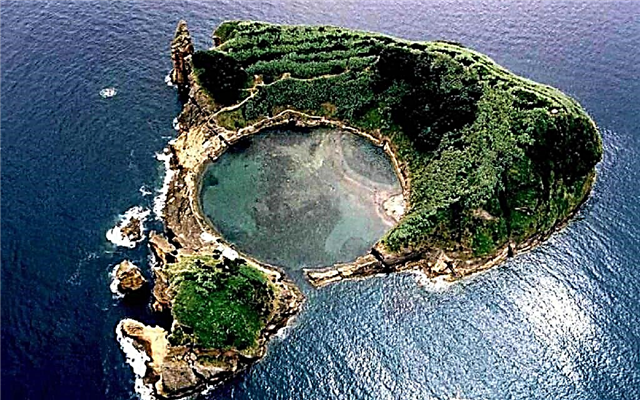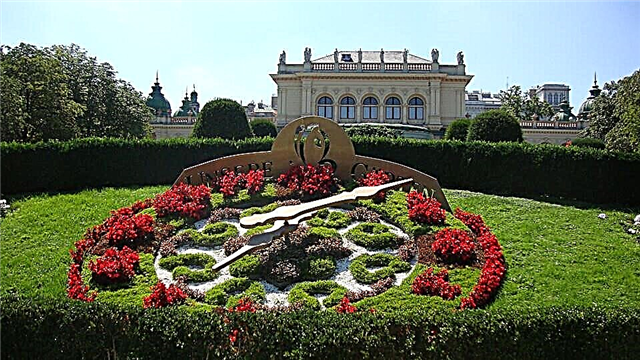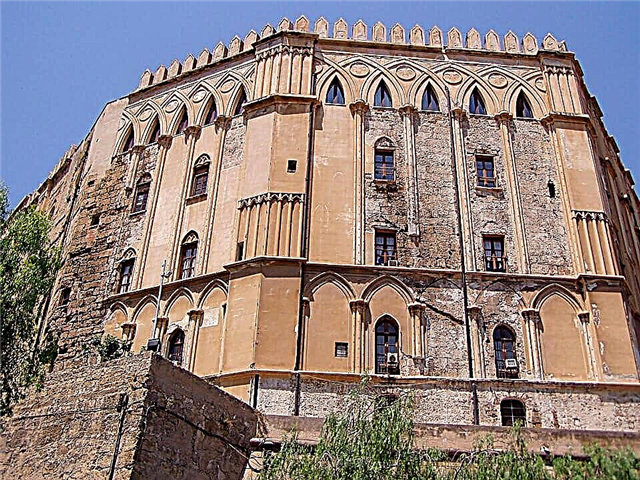The island of Sicily, without exaggeration, can be called the most picturesque corner of Italy. The impressive-sized territory, surrounded by the azure waters of the Mediterranean Sea, seemed to have been torn off by some invisible force from the Apennine Peninsula and carried away at a distance of three kilometers from it. The uniqueness of the island also lies in the fact that its shores are washed by three seas at once, which is why the little-known name of Sicily - Trinacria - which was used by the ancient inhabitants, came about.
By the way, it is this place that many tourists associate with the mafia. And many owners of restaurants and pizzerias are not averse to taking advantage of this, on the signs at the establishments of which the inscriptions "At the Mafia", "Pizza from the Godfather" and others flaunt. The beautiful corner is ready to welcome new adventurers. Let's put together a list of Sicily's must-see attractions if you find yourself on the largest stretch of land in the middle of the Mediterranean.
Church of La Martorana in Polermo

The most popular church for the newlyweds is La Martorana in picturesque Palermo. Its architecture attracts with an unusual combination of two seemingly incomparable styles: Baroque and Arab-Norman. And in our time, the cathedral works and receives guests. If you are not planning to play a wedding, it is worth visiting this fabulous place, if only for the sake of fresh impressions. Just imagine, inside you will find an amazing Byzantine mosaic that has been preserved since the 12th century! By right, it can be considered the most ancient not only on the territory of Italy, but also far beyond its borders.

The most valuable subjects of the mosaic are those dedicated to the founders of the church. One depicts George of Antioch, who lies at the feet of the Mother of God. Another captured the ancient ruler of the island - Roger II - on whose head Christ himself wears the symbol of power. Unlike Catholicism, the Byzantine faith provided for the receipt of power by kings directly from God, and not from his deputy on earth - the Pope. The church was originally erected in the shape of a Greek cross. A little later, it was rebuilt, but you can still see the original form of the cathedral today.
Val di Noto

Sicily also has its own architectural masterpiece, which is called the "Sicilian Baroque". We are talking about the Val di Noto valley, the settlements of which were subjected to colossal destruction as a result of the earthquake. It was in this place that unique architectural masterpieces were born, which today are included in the list of UNESCO World Heritage Sites.

There are eight cities in the valley, each of which can captivate your heart forever. Curvilinear forms, which can be found everywhere, are actively intertwined with unusual entourage in the form of grinning masks and wrought iron decorations on the balconies. The image of each house or structure is complemented by the amazing beauty of the stairs, as well as numerous statuettes of cupids. The finishing touch to the perfect look was the use of volcanic stone, which is unusually dark in color. These cities are called ideal by Renaissance architects. Squares, streets and whole neighborhoods create an unusual, simply grandiose panorama, as if allowing you to look at the world through the eyes of genius creators.
Villa del Casale in Piazza Armerina

Since the time of the ancient Roman civilization, a unique monument has been preserved in Sicily - Villa del Casale. You can find it just 5 km from the town of Piazza Armerina. In ancient times, it was one of the most luxurious palaces, famous for its floor mosaics. You can still look at the masterpiece jewelry today. As soon as tourists cross the threshold of the building, they cannot restrain their emotions: here and there you can hear enthusiastic exclamations and laudatory odes to the ingenious builders from antiquity.
Of greatest interest is a mosaic depicting ten girls who personify ten sports: running, throwing a discus, playing with a ball and others. Today this story is known as Girls in Bikinis. There are many other mosaics, which depict hunting, chariot races, and even erotic scenes. Until now, historians and scientists have not been able to reliably reproduce the intended purpose of each of the premises. It is assumed that the northern and western parts were set aside for thermal baths (an ancient aqueduct was discovered here). In the eastern part were the private apartments of the owners of the palace, and the northern wing provided bedrooms for guests and rooms for servants.
"Valley of the Temples" in Agrigento

Do you want to see real ruins that have survived from ancient times? Then you should definitely get to know the city of Agrigento! It is here that you will feel as though you are in a place where myths live, where man is in complete harmony with nature, where people still continue to worship ancient gods and fantastic creatures. This is the Valley of the Temples. Once here, you can get acquainted with monumental works dedicated to Zeus, Vulcan and other representatives of the family of celestials. Here are the famous temples of the Dioscuri, as well as the Temple of Concord.

The most luxurious to this day is the Temple of Zeus, which is almost not preserved. It was built by slaves in the 5th century BC. on the personal orders of Heron. Initially, the project provided for the placement of the temple on a huge area - 6.5 thousand square meters. km! And the main decoration of the temple was considered to be two 7.5-meter statues of titans. One still lies at the ruins of the complex, and the second has replenished the collection of exhibits of the Archaeological Museum of the city. But the Temple of Concord has been preserved in its best form. Perhaps this is due to the fact that the shrine was rebuilt in the 7th century, turning into the Church of Saints Paul and Peter. Thanks to this, every guest of the city today can enjoy this architectural monument.
Capuchin catacombs in Palermo

This museum can easily claim to be the most extraordinary. In fact, the catacombs are a common cluster of galleries in which the remains of the Sicilian nobility rest. The underground buildings date back to the 16-19th centuries. Today, this tomb attracts a huge number of lovers to gawk at mummies.
It is interesting that all the galleries are divided into several classes: tombs for the nobility, for priests, representatives of certain professions. For all visitors, without exception, acquaintance with the catacombs evokes a mixed feeling of delight and disgust. After all, not everyone can understand how one can treat the dead so disrespectfully.
Mount Etna

Finding yourself in Sicily and not visiting its main attraction - Mount Etna - is the same as going to a pizzeria and not ordering anything! It is to this natural phenomenon that the island owes its appearance. The black and white top of Mount Etna can be seen from every corner of the island. This is not just another attraction that every tourist should take a photo against. It is a symbol of Sicily, a unique volcano that has no analogues in any part of the world. As in ancient times, the volcano presents a huge mystery to humanity. Even today, when the most intelligent creature on the planet has state-of-the-art equipment, not all the secrets of this place have been learned.

If we put aside fear and independently figure out how dangerous the volcano and life at its foot are, it turns out that everything is not so bad. The eruptions of the volcano periodically spoil the mood of the indigenous Sicilians, yet they have learned to adequately respond to the awakening of the “neighbor”. By the way, it is Etna that the local winemakers owe to the fertile soil and the unique taste of grape wine.There is an excursion program for tourists, which allows them to take a fascinating walk to the top along one of the routes. Experienced guides will make the walk not only fun, but also safe. After all, the volcano is characterized by a huge number of craters, the activity of which is difficult to predict.
Puppet Museum in Palermo

Italy is considered not only the birthplace of pizza, spaghetti and the mafia. It was in this country that the first puppets for the theater appeared. Piero, Artemon, Malvina - all these names are of Italian origin. And today you can see amazing collections of puppets in special exhibition centers and museums.
Sicily is also famous for its puppet museum, which opened its doors to visitors in 2006. The uniqueness of the exhibition center lies in the fact that the displayed exhibits are the result of the painstaking work of entire dynasties of puppet masters. Only here you can see the first dolls that were created in the 16th century!

Knights, monsters, angels and devils - there is a lot of this here. In separate halls, whole performances with the participation of puppets are organized, serious events unfold with an unpredictable ending. And everyone who is ready to spend only 7 euros can become a witness to this enchanting action!
Palazzo Normanni in Palermo
Another attraction of the island cannot be ignored - the Palazzo Normanni. It was from here that Sicily was ruled by its many kings, and today the representatives of the island parliament are doing the "just cause". Unfortunately, you won't be able to see all the galleries of the Royal Palace today. Access to many parts of the building is limited.

But even a cursory acquaintance with one of the most unique architectural monuments that combines the Byzantine, European and Arabic styles will be enough to experience a real emotional uplift.
Rabbit Beach on Lampedusa Island

Lampedusa, part of the Pelagian Islands, is located in southern Sicily, near Africa. Lampedusa has unique traditions, unique gastronomy and beautiful nature. An ecologically clean place where rare sea turtles live and there is a "Sea Turtle Rehabilitation Center". Here, between rocky ledges and Mediterranean vegetation, is the Rabbit Beach, with fine white sand and turquoise water. He has been recognized as the best in the world more than once.
The territory belongs to a protected area and is protected by the state, therefore, the negative human influence is minimal here. A calm place where you can dive with a mask and fins and admire the extraordinary underwater kingdom, look into the grottoes. Open from 08:30 to 19:30. You can reach Lampedusa by ferry from Porto Empedocle or by plane, it has its own airfield serving domestic airlines. Then by car (about 10 minutes) and 20 minutes on foot.
Ortigia Island in Syracuse
Ortigia (Ortigia) - the historical center of Syracuse, whose age is estimated at millennia, is connected by three bridges, the central one is Ponte Umbertino, passing along it, you find yourself at the Temple of Apollo. The pride of Ortigia is the Dome Cathedral. Erected on the site of an ancient Greek temple, from the 7th century it became Christian. Inside is the chapel of St. Lucia, where some of her remains are buried. Open from 08:00 to 12:00 and from 16:00 to 19:00. An interesting fountain of Arteusa is a reservoir near the sea, in which ducks, colorful fish swim, a plant unique in Europe grows - papyrus.

You should definitely visit the Paolo Orsi Museum of Archeology, a building built specifically for the exhibition. Collected artifacts found during archaeological excavations. Mostly belong to the prehistoric period, before the Greek and Roman eras. Open from 09:00 to 18:00, Wednesday until 17:00. The day off is Monday. Ticket 8 euros.
Of the secular buildings, the Montalto Palace is interesting, its construction began in 1397 by order of the aristocrat Mergulese. In the 15th century, it passed into the possession of Montalno, having received it as a gift from the Aragonese queen. The external facade, made in the Gothic style, has an interesting detail - three windows of different sizes. In Ortigi, there is the Maniace fortress, erected in 1239, served as a royal residence, and there was a prison in it. Visit from 09:00 to 13:30, entrance 2 euros.
Near the Aretusa Fountain on Via Cavour there are restaurants, cafeterias, shops and stalls where you can buy souvenirs. Locals love to stroll along the narrow picturesque embankment. Get there by scheduled bus, taxi or rented transport.
Cathedral in Montreal

Not far from Palermo is the small town of Monreale, which is home to just over 30,000 inhabitants. The main attraction is the Cathedral of Santa Maria Nuova, which is already 900 years old. The magnificent Norman church was built in 1172-1186 by William II. The complex includes a Benedictine monastery, a temple and the residence of the kings. Since the 12th century, the appearance of the building has not changed significantly - the facade is decorated with arches, one tower is crowned with a spire. In 1267 the cathedral was consecrated. It was reconstructed in the XV-XVII centuries - the sacristy was added, in the XVI the floor was covered with white marble and the Crucifixion chapel was built. In the portico of Hajin, there is a statue of Wilhelm the Good, presenting a gift to the Mother of God.
In the 19th century, the temple was damaged twice - in 1807 from a lightning strike, part of the walls collapsed. In 1811, a fire destroyed the unique ceiling made by the Arabs. The architecture combines several styles in external decoration and interior: antique, Byzantine, Norman. For tourists it is open from 09:00 to 13:00, on Sunday from 09:00 to 12:30. In high seasons - from 15: to 19:00. Located at a distance of about 10 km from Palermo, it is convenient to get there by regular bus. The cost of a one-way ticket is 1.5 euros.
Cyclops coast

The Cyclops Coast is one of the most beautiful places on the Ionian coast in the town of Achi Castello. It is included in popular tourist routes - quaint lava islands are very unusual and attract many tourists. The name is associated with Odysseus, sung by Homer. Odysseus sailed the seas and could not get home until the waves washed his ship to the shore of a beautiful island near Mount Etna. Cyclops lived on it and the most bloodthirsty, Polyphemus, lived in a cave, where travelers ended up. Cyclops asked Odysseus what his name was and he answered - Nobody.
Odysseus offered the monster wine, after drinking it, the giant fell asleep. Odysseus gouged out the sleeping ogre's one eye. Other cyclops came running to the terrible screams, but when they heard that Nobody had done it, they left. Odysseus and his comrades were able to escape, an angry cyclone threw rocks at the fleeing people. They, falling into the sea, formed strangely shaped rocks.
Ragusa

Ragusa is famous for its beautiful buildings in the Baroque style, it is divided into the modern Upper and the old Lower Town. The lower part was built on the site of the old one, destroyed by an earthquake at the end of the 17th century. Most of the new buildings were built in the Baroque style. Ragusa amazes with the beauty of its numerous palaces, churches and monuments. On the square in the Upper part there is one of the main Cathedrals - St. John the Baptist, its construction was completed in 1778. The temple is located in the square of St. Giovanni.
It is interesting to visit the Archaeological Museum, which introduces the ancient history of Ragusa. Open from 9 am to 1:30 pm and from 3:30 pm to 7:30 pm. The ticket price is 4 euros. Secular buildings include the Skinina Palace in Upper Ragusa. In the 18th century, the Marquis Mario Skinina lived here, now it is the seat of the bishop. Dzakko palace in rococo style. On the corner of the facade is the family coat of arms, the balconies are decorated with grotesque masks. Previously, five gates led to Ragusa, they all collapsed, only the Porta Vattirieti gate remained. There are regular buses from Syracuse, Catania, Palermo.
Tuna Museum in Favignana

On Favignana, located in the western part of Sicily, tuna has been fished here since ancient times, systematic fishing began in the 17th century. In 1874, the wealthy Ignazio Florio invested large sums of money in the local economy. In particular, he built a tuna processing factory, which has become, in modern language, a city-forming enterprise.
Now there is a museum on the site of a closed factory, where you can find out how the fishing took place, what tools were used, how the fish was processed. Opening hours from 10:15 to 13:15 and from 16:15 to 19:15. Entrance fee is 4 euros, for people over 65 years old - free. Get to Favinnma by speedboat from Trapani. Price 10-12 euros per person one way (price includes tax for visiting the island). A return ticket is about 9 euros.
Nature reserve in Castellammare del Golfo

Between Palermo and Trapani, on the shores of the bay, is the village of Castellammare del Golfo, a village in which about 15 thousand people live. Tourists are attracted here by the Jingaro Nature Reserve - with clear water and stunning views. The reserve is spread over an area of more than 1600 hectares between the cities of San Vito Lo and Capo do Scopello. The area is indented with caves and intricate lava figures on the rocks.
Residents saved the beautiful nature from buildings, which contributed to the preservation of local plant and animal species. The rich underwater world amazes with its diversity, caves and grottoes make these places ideal for diving. The reserve has many safe trails that cover the entire coast. The Museum of Nature works. You can swim in the bay.
Historic Center of Noto

Noto is a commune in Italy, it is home to about 24,000 people, an area of 550 sq. The patron saint of the commune is Saint Corrado Confalonieri. Noto was almost completely destroyed in 1693. They decided to build a new one in a different place, almost all buildings in the Baroque style, with wide straight streets, squares and terraces. Many buildings were erected by the architect Vincenzo Sinatra. Tourists admire the famous Cathedral of San Nicolo, the basilica is made of yellow sandstone. Regular buses leave from Catania.
Cala Rossa - Favignana beach

On the banks of Favignana, there is a flat coastline, which made it possible to equip many cozy comfortable places for swimming, one of them is Cala Rossa. According to legend, the name took place after a naval battle between the Romans and the Carthaginians. The sea that day was colored blood red.
The sandy seabed, the absence of waves, allows you to dive into the water with masks and fins. Everything here is for lovers of a quiet and relaxing holiday. You can get there by ferry, which makes regular flights.
Syracuse Cathedral

The Cathedral of Syracuse is a lacy Baroque building, a Christian church built on the ruins of an older temple of the Greeks. In the 16th century, the temple was expanded - three chapels were completed. In the first half of the 18th century, according to the project of the architect Palma, the western facade was erected around the preserved nave and apse, chapels with columns, wrought-iron gates, frescoes and statues were built. In 1911, large-scale restoration work was carried out and the gaudy decorations of the 19th century were removed. Opening hours are from 09:00 to 12:00 and from 16:00 to 19:00.
Erice in the province of Trapani

The small town of Erice rises to 751 m sea level and is visible from almost every point of Sicily. Founded as a religious center dedicated to the goddess Aphrodite, later under the Romans - Venus. The population is about 30,000 people. Erice is triangular in plan, the streets are confused and winding. In the westernmost part. Next to the Norman gates of Porta Trapani is the Chiesa Matrice, built in 1314. From the temple it is easy to walk along a scenic road to the castles of Castello Pepoli and Castello di Venere. The exposition of the city museum is interesting, some exhibits date back to the Stone Age.
The nearest large settlement is Trapani, from which you can get to Erice in two ways. One way is by funicular.
Opening hours:
- from 13:00 to 01:00 - on Mondays
- from 07:45 to 01:00 - from Tuesday to Friday
- from 08:45 to 02:00 - on weekends
Or on a regular bus. Erice can be bypassed in a few hours, the sense of time disappears here. The silence and clouds of medieval walls make it unlike other places in the country.
Vulcano Island

Not far from Sicily in the Tyrrhenian Sea is the picturesque Italian island of Vulcano. Named after the ancient Roman god - the patron saint of blacksmiths. The ancient Greeks believed that the god's blacksmith was located on the island, from which smoke and fire burst. The territory of the island is formed by volcanoes and among them there is one active - Fossa, the last eruption occurred a hundred years ago, but as scientists say, at any time it can wake up and show its power. People living near the volcano earned money by collecting and processing volcanic sulfur. Now residents are engaged in tourism business, this place is popular.
People come here not only to admire the grandiose views, but also to take healing sulfur and mud baths, and enjoy excellent local wine. Tourists are offered a fascinating journey to the crater of the volcano, located at an altitude of four hundred meters. At the top, a stunning panorama of the entire archipelago opens up. Downstairs, Monster Valley is a frightening place created by sand and plants. The beaches of this place are unique - the sand is not the usual yellow or white colors, but black, which looks unusual. You can swim and sunbathe here all year round. Ideal for families, with a developed infrastructure - there are children's and sports grounds.
Palace of the Normans in Palermo

Palazzo Normanni was built by the Phoenicians, then it was captured by the ancient Romans, then the Arabs, who conquered the city in the 9th century. The heyday of the palace falls on the reign of Frederick II, the king made it an imperial residence. It is a fortress decorated with false arches. The oldest Leaning Tower of Pisa has survived (the astronomical observatory of the local university was built here).
Of greatest interest are the Palatine Chapel, the Roger Hall, the construction of which dates back to the days of the reign of William II, decorated with mosaics on secular subjects, and the Armies Hall. In the royal apartments, there is an interesting hall of Hercules, the ceiling of which is decorated with the image of a deity by Velazquez.
Greek theater in Taormina

Built in the 1st millennium BC. by the Greeks. The 10,000-seat auditorium faces the sea with breathtaking views of Etna and the Ionian coastline. Under the Romans, the theater was re-equipped - gladiator fights were held there. Today the Greco-Roman theater is a symbol of Taormina; the ancient building hosts events, in particular, the International Festival of Arts “Taormina Art”.
Church of Jesus in Palermo

The Temple of Jesus, known as Santa Maria di Gesu, is the most famous in all of Sicily. Construction began in the 16th century by Jesuit monks, designed by Tristano. At first, the church had a main nave and side chapels, to give a more monumental look, later two side chapels were added on both sides. Consecrated in 1636.
The interiors are decorated with mosaics. In the chapel you can admire the adoration of the Magi fresco. The restoration work lasted two years, opened in 2009. Open to visitors from 08:00 to 13:00 and from 16:00 to 19:00.
Benedictine monastery in Catania

The Benedictine Monastery, which houses the main Sicilian museum of antiquity and modern art, is definitely worth a visit. The monastery complex includes the Church of St. Benedict.
Nowadays, a university is open on the territory - literary and philosophical faculties. The former cells are the offices of the professors, and the classrooms are in the churches. The monastery has a rich library of 100,000 volumes, most of which are of historical value.You can visit on Friday, Saturday and Sunday from 10:00 to 19:00.
Church of San Giorgio in Modica

Ancient Modica during the period of its existence was under the oppression of many tribes and nationalities. In the 18th century, it becomes the cultural capital, where scientists, philosophers and poets live and work. The historic center is divided into Upper Modica and Lower Modica. The main and most beautiful temple of San Giorgio, began to be erected in 1643, but was soon destroyed by the Great Earthquake. The building was restored, significantly modifying its architecture: now it consisted of five naves, with a bell tower in the middle of the building.
The church was erected on a hill, so it seems light and airy. In 1738 it was consecrated, but continued to be completed: in 1761 the lower part of the facade was completed, then the upper parts, in 1818 a beautiful wide staircase was added.
Bay of Bue Marino in Favignana

Favignana Island belongs to the Egadi (or Agatha) archipelago. This region is famous for its marble quarries, beaches and coves. An ideal place for diving, but the water is cool, no more than 25 degrees, it feels much lower. The descent to the water is not very convenient - it is rocky and steep, but for those who like to dive with a mask there is expanse here. Corals, schools of colorful fish, various aquatic plants, mysterious grottoes and caves are underwater. You can get from the nearest town of Trapani by speedboat.
Ceramic Museum in Palermo

The art of ceramics was of exceptional importance on the island, and the Pottery Museum is dedicated to this craft. It contains more than 3000 tiles, some of them over 400 years old, made by contemporary craftsmen. Has been collecting for many ceramics enthusiast Pio Mellino. The museum is located in the restored Torre Piraino palace.
The building was built in the 16th century - its ceilings are painted with wonderful frescoes. The museum is very popular and therefore plans to expand it. Via Giuseppe Garibaldi, 11, Palermo, Sicily. Tickets cost 4 euros.
Cathedral in Catania

In Catania, you should definitely visit the Cathedral of St. Agatha, the patroness of the city, her remains are buried in the temple. Built in the 11th century, destroyed by an earthquake in 1169, only a part of the altar on the eastern side survived. A devastating fire then severely damaged the building and was rebuilt again.
The Great Earthquake again destroyed the temple to its foundations, burying 7,000 worshipers under the walls. In 1711, the Cathedral of St. Agatha was rebuilt. There are statues on the marble façade. Open from 08:00 to 12:30 and from 16:00 to 19:00.
Scala dei Turchi

Scala dei Turchi (Turks staircase) - this is the name of the most beautiful mountain on the seashore, not far from Palermo. Located between the city of Realmonte and Port Empedocle. It got its name from Turkish pirates who liked to take a break from raids in a calm bay. The staircase consists of snow-white marl rock. The setting sun lends incredible whiteness to the stone. There are convenient beaches at the foot of the mountain.
Aegadian Islands

The Aegadian Islands group includes Favignana, Levanzo, Marettimo and several smaller ones. People settled here in prehistoric times, at that time the land was connected with the mainland. Ancient drawings and stone products decorated with carvings were found in the cave. Now it is home to about 4,300 people. The administrative center is the village of Favignana.
The territory has been studied by archaeologists for a long time. Amazingly clear water, beautiful shores with unique reliefs, caves and grottoes - all this was the reason for the development of tourism. Local attractions - caves with drawings, Viking fortifications and buildings from the times of the Republic of Genoa. You can get to the islands by regular ships that make regular flights from Trapani.

